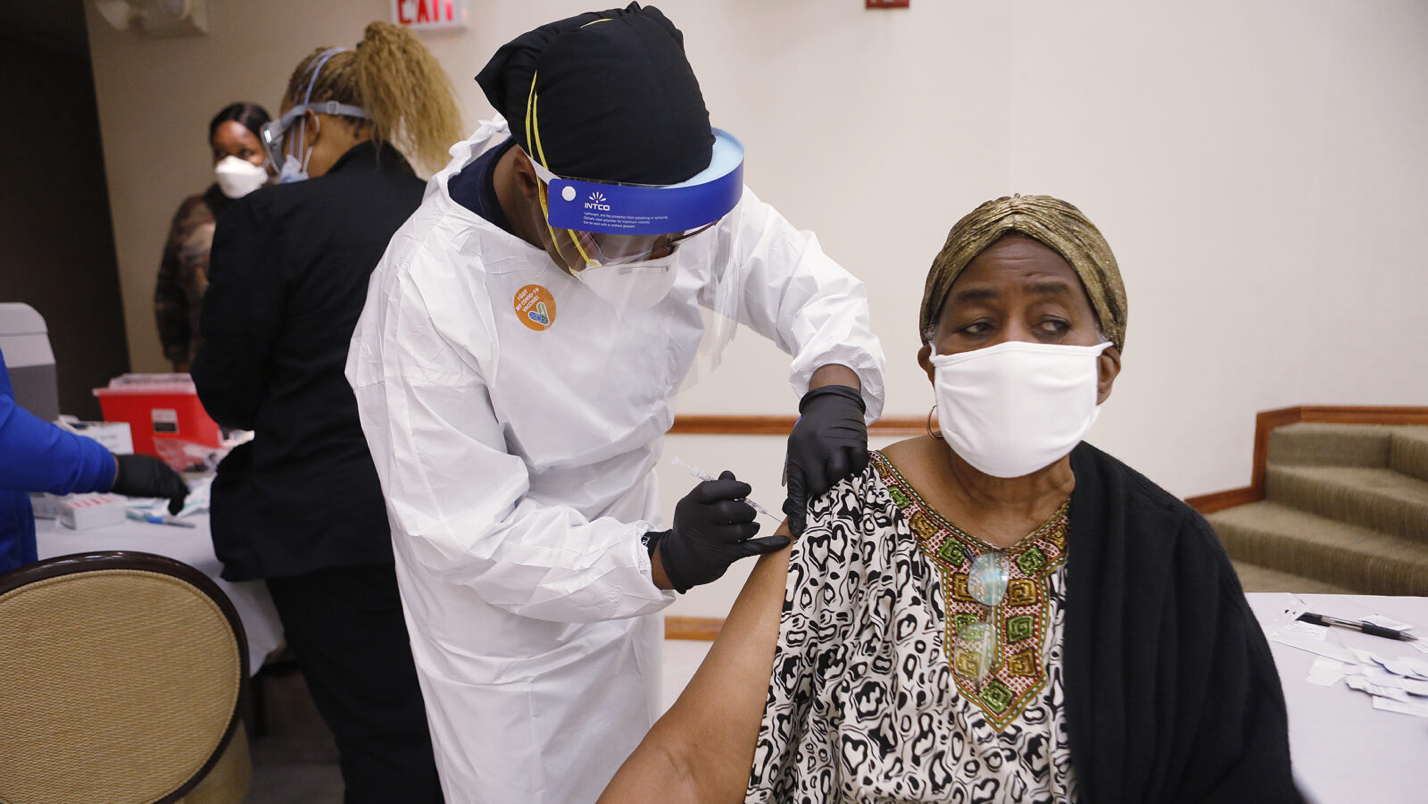n September, after the Food and Drug Administration authorized certain Covid-19 treatments seemingly based more on presidential puffery than on clinical data, some physicians decided to take matters into their own hands.
Specifically, the National Medical Association, a professional society of African American doctors, formed its own in-house FDA to vet the data when the official one seemed not to be. At first, the task force was framed as a stand-in — another instance in the long history of Black leaders stepping in where the government had failed. And eventually, its members did review the results and endorse the emergency authorizations for both the Moderna and Pfizer/BioNTech vaccines.
But they’ve moved beyond mere recommendations. They’ve also taken on the slower, more painstaking work of building and maintaining patients’ trust in these vaccines. As Rodney Hood, one of the physicians on the NMA task force, put it, “We realize that Black people are at the highest risk for coronavirus but the least likely to want to take the vaccine, so we’re trying to reverse that.”
Racism in the health care system is part of the reason that the NMA exists. The American Medical Association, which set standards for the profession, repeatedly denied membership to Black doctors — so in 1895, they founded a group of their own, “conceived in no spirit of racial exclusiveness, fostering no ethnic antagonisms, but born out of the exigency of the American environment.”
Combatting vaccine hesitancy is a natural fit. But it isn’t something that happens overnight — or even necessarily over the course of weeks, in part because of the implicit bias rooted in the history of American social services itself. Too often, the very words used to describe these dynamics — “health literacy,” say, or “adherence” — carry hints of blame or disdain or both.
“You can’t look at that hesitancy at face value. Centuries of inhumanity — that’s not easily forgotten,” said Gabrielle Perry, a clinical epidemiologist who works at a private health system in New Orleans, who is not involved with the NMA. What she means is that American medicine has a long history of both abusing and excluding people of color.
“Medical professionals have to understand that the fear of Covid-19, which is this invisible looming foe, that fear does not always outweigh the very clear and well-documented danger of going to a health care system that has proven itself to be as deadly as disease,” Perry said. She pointed to the forced sterilization of poor, disabled, and Black women through much of the 20th century as just one of many examples.
Given that history, it’s perhaps not surprising that NMA task force members — in meetings and webinars organized with churches, universities, fraternities, sororities — often hear concerns about how the vaccine might affect fertility. “I’ve been on a town hall just about every day,” said NMA President Leon McDougle, a professor of family medicine and chief diversity officer at Ohio State University Wexner Medical Center. “These convenings are also informing discussions with the pharmaceutical company scientists that are producing the vaccines, so that when we meet with them, these are questions we can ask.”
To McDougle and his colleagues, what’s important is hearing those questions without judgment, posing them to vaccine manufacturers, and then bringing back real, transparent answers to the next town hall.
“There was some concern that the vaccine was going to be geared to Blacks and that it would cause infertility. That was more of a myth, but we felt it was responsible to ask them about that,” explained Hood, a past president of the NMA and an internal medicine doctor at San Ysidro Health, in the San Diego area. “They said there was no data showing that.”
People have asked whether having certain conditions that disproportionately affect Black patients — sickle cell disease, for instance, and HIV — might affect the vaccine’s safety or efficacy. The task force has reported back, after meetings with Moderna and Pfizer/BioNTech, that the vaccine trials included participants with those illnesses, that no problems have arisen specifically in those subgroups, but that the members will keep following up with the companies as analyses become more and more fine-grained. “We’re having a conversation with the Black community,” McDougle said.
To those who study vaccine hesitancy, this sort of long-term, nonjudgmental back-and-forth seems promising. “Sometimes we do not listen to those who we want to serve,” said Fern Webb, an epidemiologist at the University of Florida’s Jacksonville campus — and that isn’t the case here.
But part of that listening also has to involve a more nuanced understanding of identity. As Ebony Toussaint, an adjunct professor and Ph.D. candidate studying health services at the University of Maryland pointed out, those who identify as Black encompass all sorts of backgrounds and cultures and identities, and to address all those communities as a single one is a mistake. “That would be like me saying, ‘I’m going to have a white outreach program,’” she said. “It would sound absolutely ludicrous.”
It’s a thought shared by many: The more personal and familiar the outreach, the more likely that it’ll work.
“When we look at all these online strategies — campaigns on social media, a chatbot — we don’t really know yet what is really effective,” said Ève Dubé, a senior researcher at the Québec National Institute of Public Health, and an invited professor of anthropology at Laval University. Because our opinions are often influenced more by our relationships than official public service announcements, to her, it’s best if the message is local, community-specific — even if that’s more expensive and time-consuming. “When it’s someone you know, your doctor, your nurse, your neighbor, your priest, we know that that’s what’s the most effective,” she said.
Yet all of these ideas are moot if people can’t access vaccines. As Oliver Brooks, chief medical officer of Watts Healthcare Corporation, a past president of the NMA, and a member of the task force, explained, “we need to ensure that the African American community and those that have challenges with transportation, health care, sick leave from work, and finances — that they have as much access as others. … There should be a nationally coordinated strategy.”




